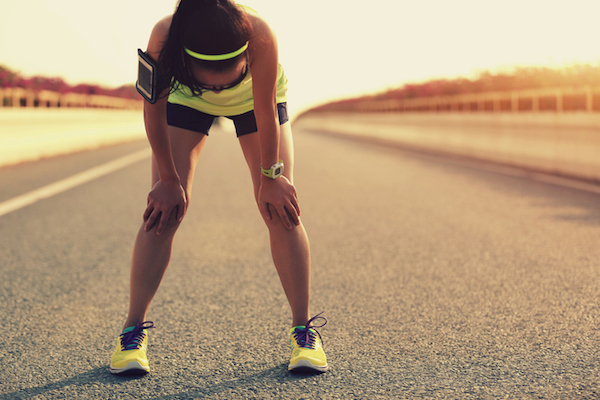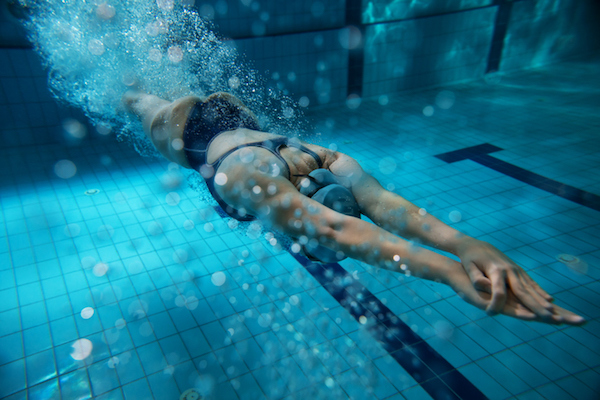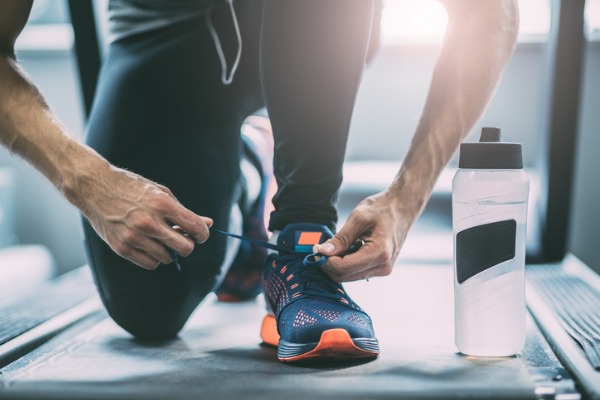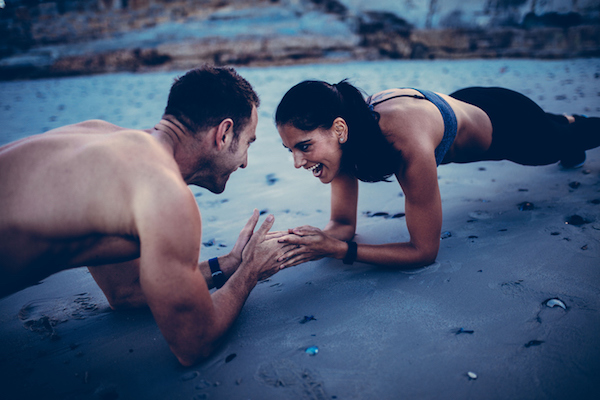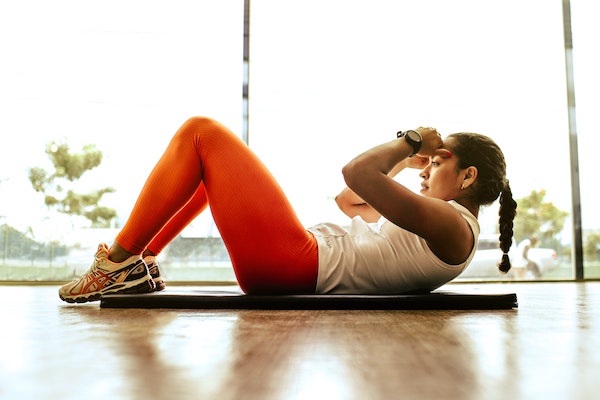
Advanced Exercise Concepts – Mind Over Matter
Just like most of your body's main organs (brain, lungs, heart), your eyes can be affected by your lifestyle choices.
As you continue to Live in Your OcularPrime, you’ll eventually understand that there are eye healthy benefits to exercise. As an eye doctor, I wouldn’t necessarily call myself a fitness expert, but I try to do the best I can with the body I have.
At the same time, I wouldn’t consider myself a pushover. I was involved with dance during my younger years (all the way through college). I wasn’t born with the natural ability of a Team USA women’s soccer player, or a UFC Champion, but I did manage to stretch my body’s athletic capability to this point.
And that’s exactly what Living in Your OcularPrime is all about. Being closer to your best, rather than your worst. Remember what Bill Bowerman (Nike co-founder) said, “If you have a body, you’re an athlete.” I believe in this statement one-hundred percent.
Eye Healthy Exercise Benefits:
Just like most of your body’s main organs (brain, lungs, heart), your eyes can be affected by your lifestyle choices. Obesity (or just being out-of-shape) can lead to complications such as hypertension, high cholesterol, diabetes or even cancer. Eye related issues are no exception to the rule.
Exercise decreases your risk of the following eye related diseases:
- Glaucoma – damages the optic nerve
- Macular Degeneration – a leading cause of vision loss
- Diabetic Retinopathy – can eventually lead to blindness
Think of your body as a well-oiled machine. It’ll run smoothly when all parts are working together. If one part isn’t cutting it, efficiency will begin to break down. It won’t be long until other aspects fall apart as well.
The Beginner Athlete:
If your current goal is to start working out, please refer to my previous fitness post. Your best bet is to start slowly and build momentum.
In the early stages, try to keep your workout as easy as possible. The point is to keep coming back day after day (within reason). The process to ideal health is a long one (possibly never-ending). If you’re a heavy smoker or you don’t work out at all, even one or two laps around the track might be difficult.
Some physical benefits of exercise include:
- Self-image enhancement
- Muscle strength & endurance
- Better posture
- Easing of back pain
- Improved heart & lung performance
- Improved joint function
- Overall anti-aging effects
Remember to make exercise easy on yourself. The path to consistency starts with short-term reachable goals.
The Moderate Athlete:
Most professionals (like myself) fall into this category. I’m not able to workout every day, but keeping fit is a top-priority. I typically get to the gym three or four times a week.
The key to success at the moderate level is finding an enjoyable athletic activity and turning it into a workout. For instance, since my favorite activity is dance, I naturally excel in barre and/or pilates classes. These specific workouts target the muscles dancers use most.
On the other hand, my husband (for example) prefers kickboxing, kettlebell training, and TRX workouts. He excels at High Intensity Interval Training (or HIIT).
Other useful workouts include:
- Boxing
- Cycling
- CrossFit
- Martial Arts
- Rowing
- Yoga
Pick the one that works best for you and stick with it.
People who exercise frequently tend to excel in their careers. Better health can also save money (for employees and employers) by cutting out visits to the doctor’s office. Today, some health insurance providers are offering bonuses to members who stay on top of their health.
Exercise can enhance your professional life by helping with:
- Stress management
- Concentration
- Confidence
- Memory
- Sleep
It can also boost your immune system, enhance your mood and improve your learning capabilities.
The Advanced Athlete:
If exercise is a part of your daily routine, it’s probably because you get it. You could be a professional athlete, a fitness professional, someone with an active job description, or maybe you just like to workout.
In this case, I won’t offer much advice. You most likely have a good handle on physical fitness. If you need help, you probably know where to find it.
However, I do advise you to listen to your body. No matter how often you exercise, your body always needs rest. It might be once a month, once a week or every other day. The best way to maximize your exercise plan is to be flexible. If you went too hard the day before, there’s nothing wrong with taking a day off and getting back at it tomorrow.


